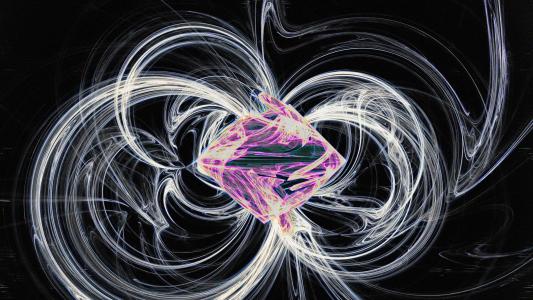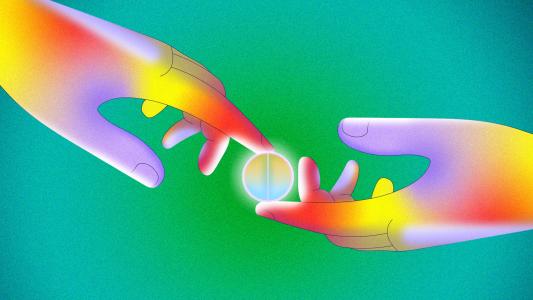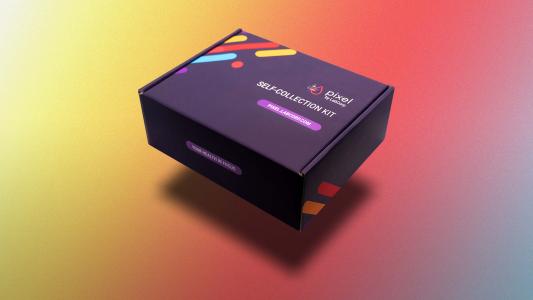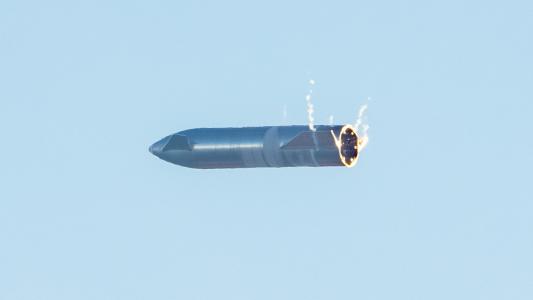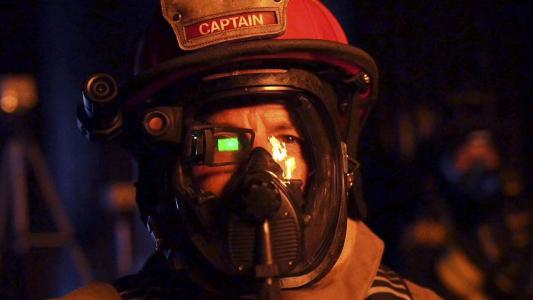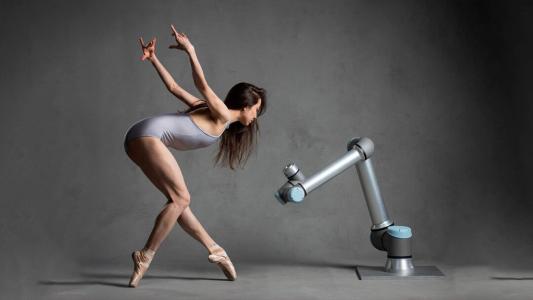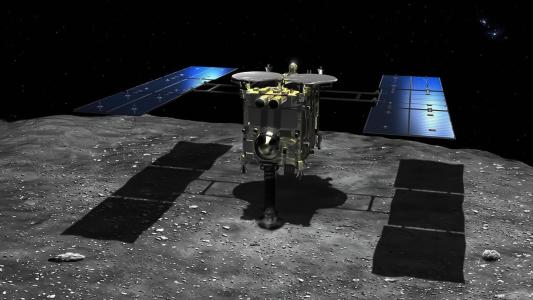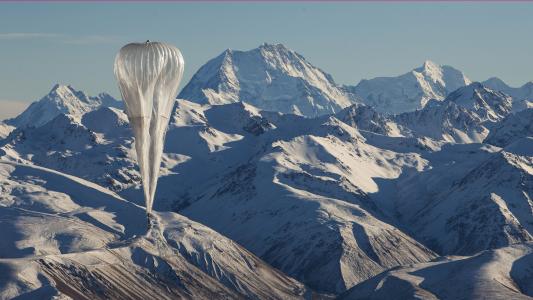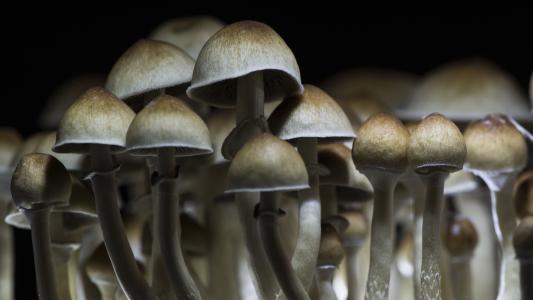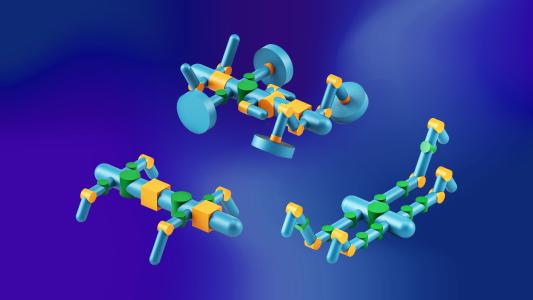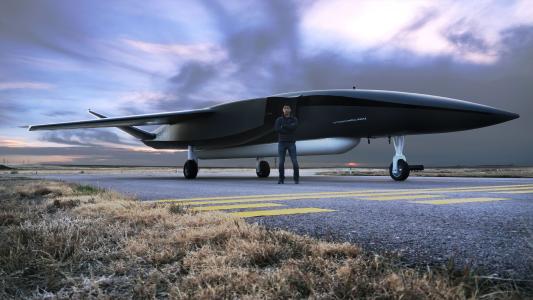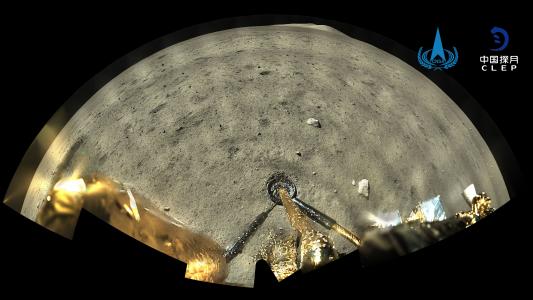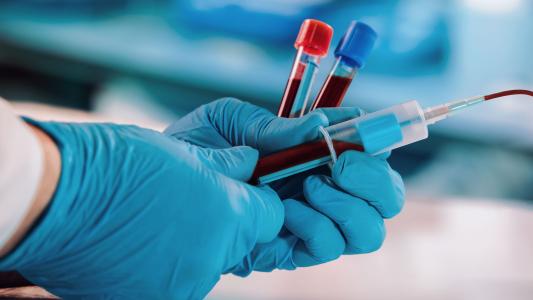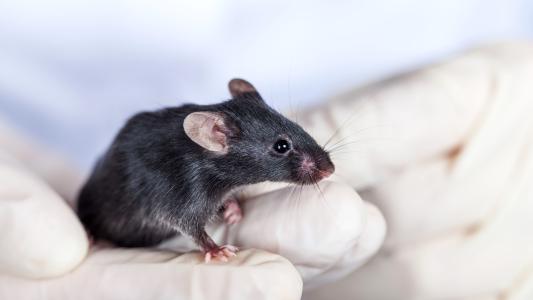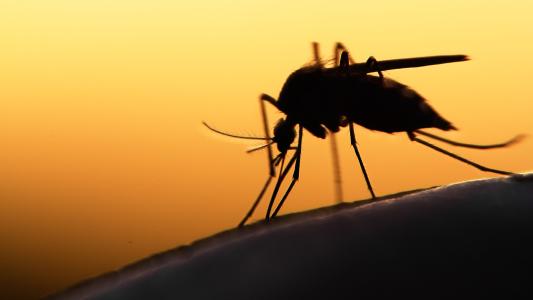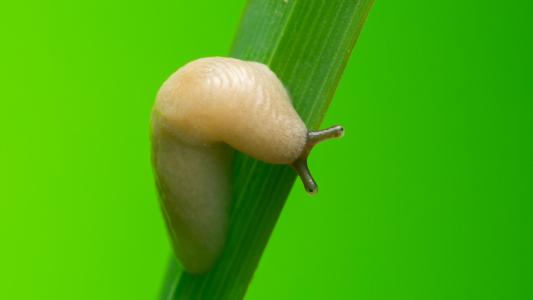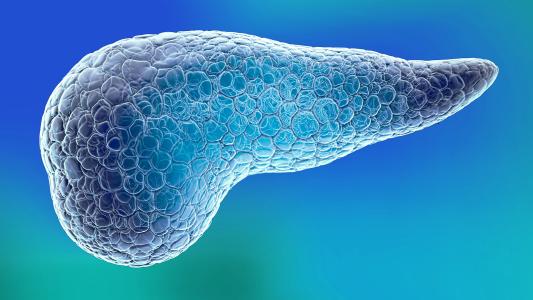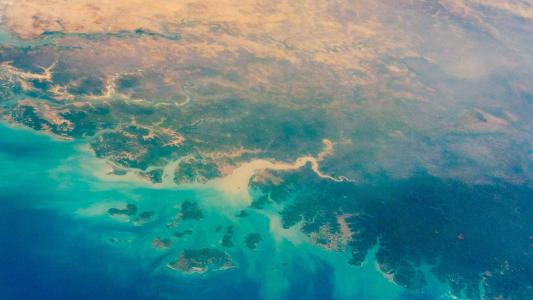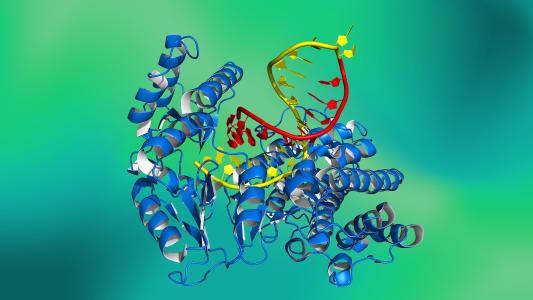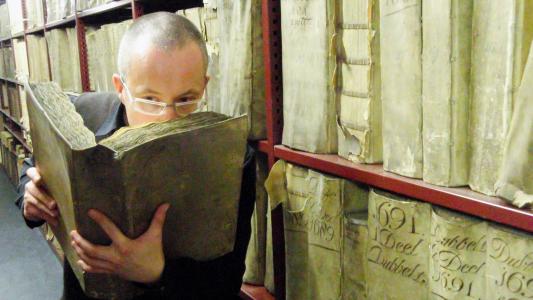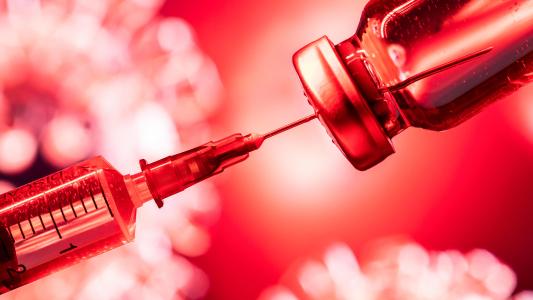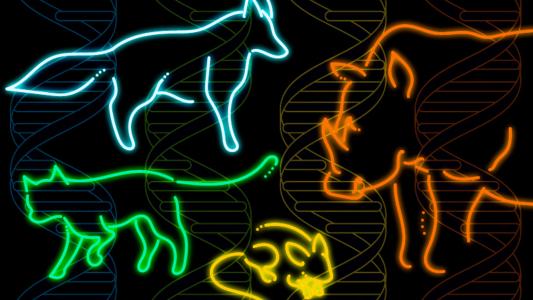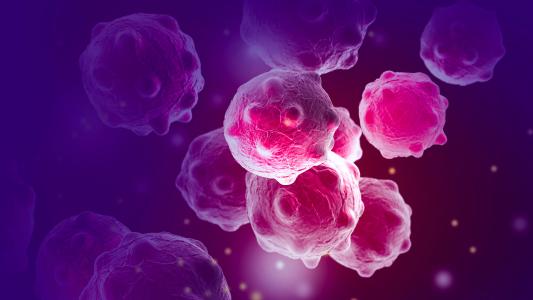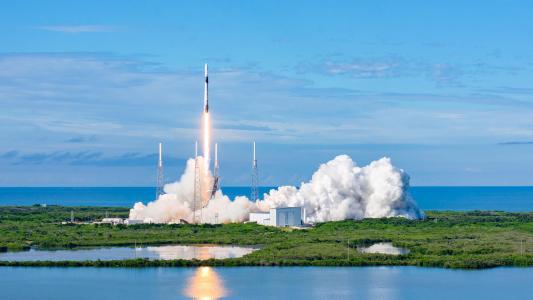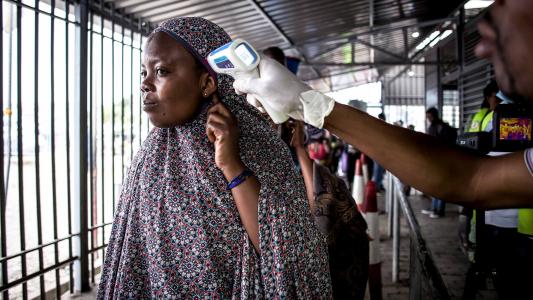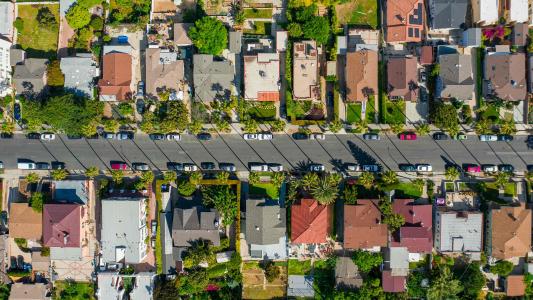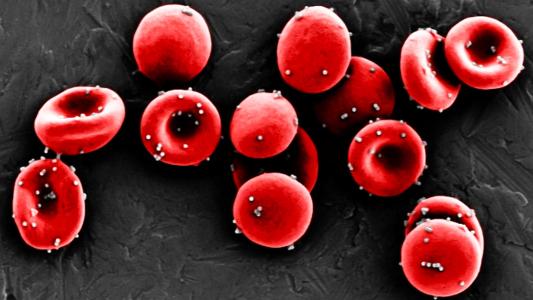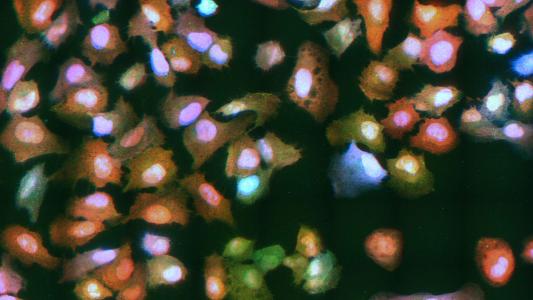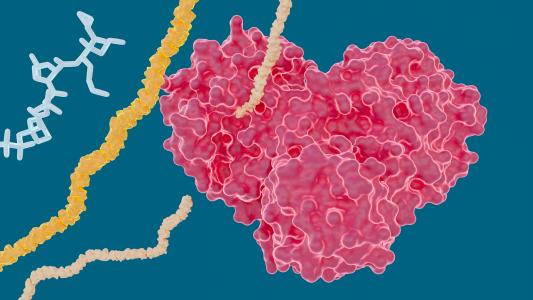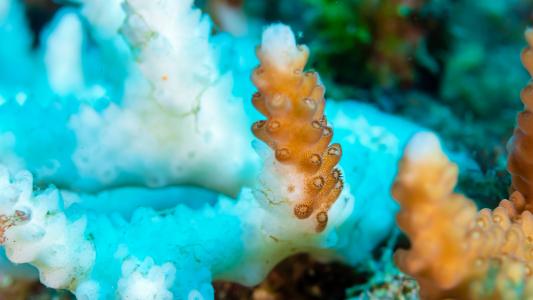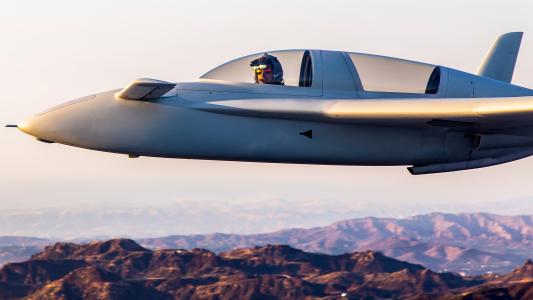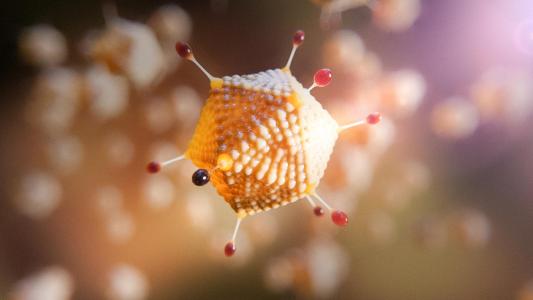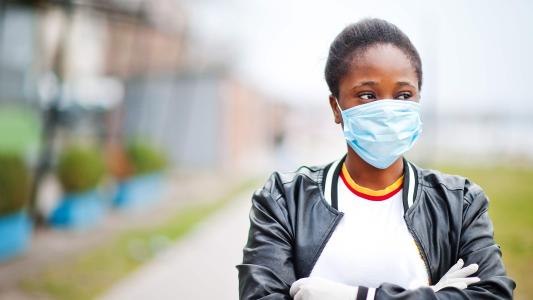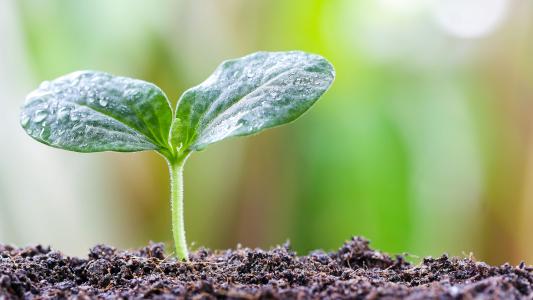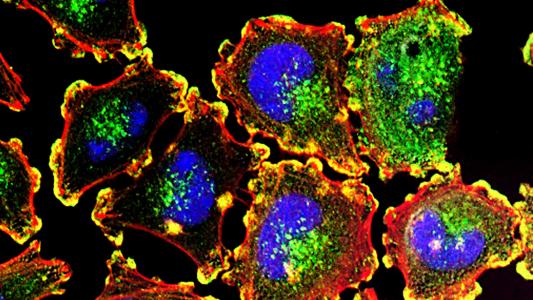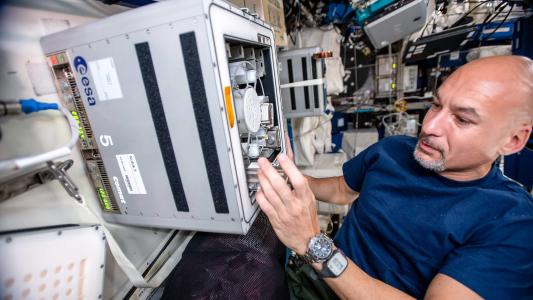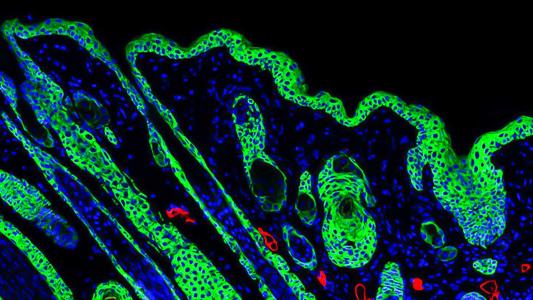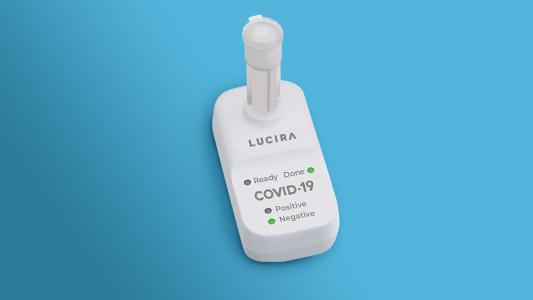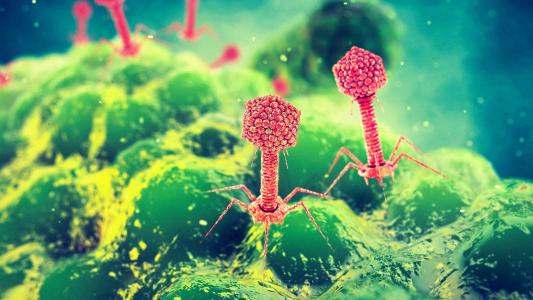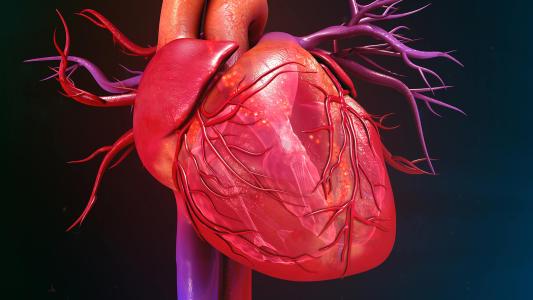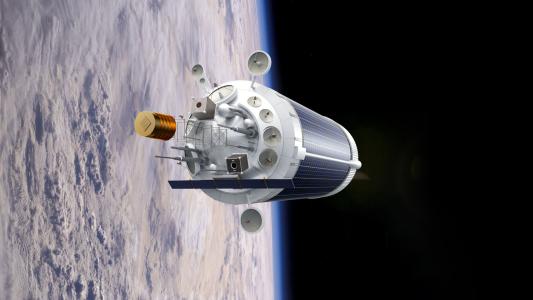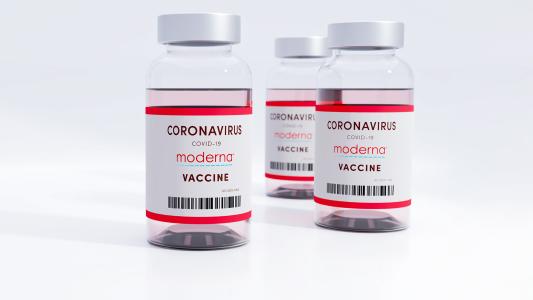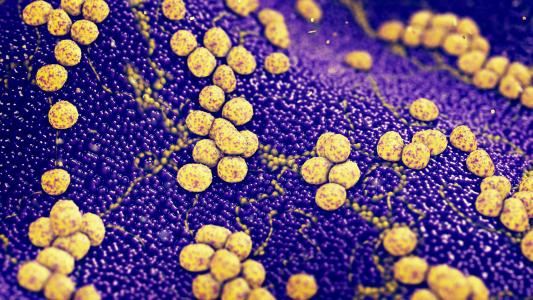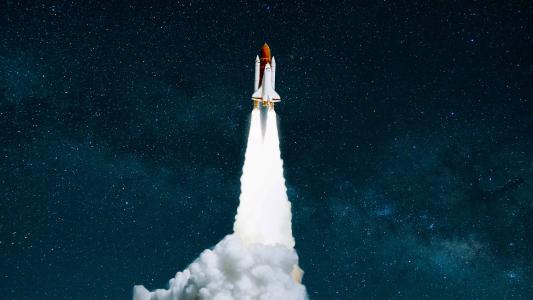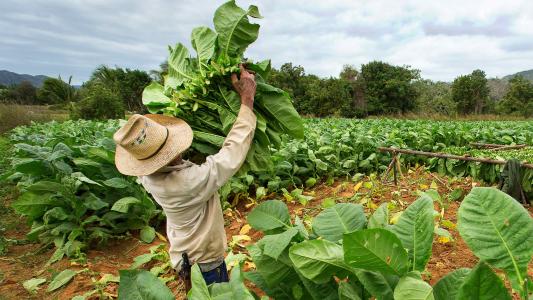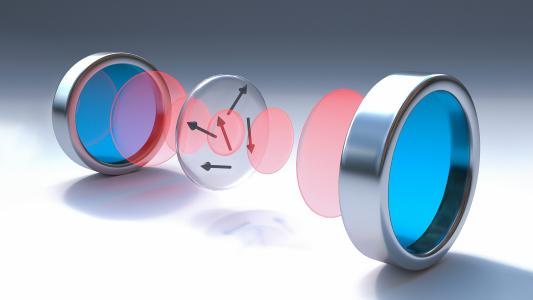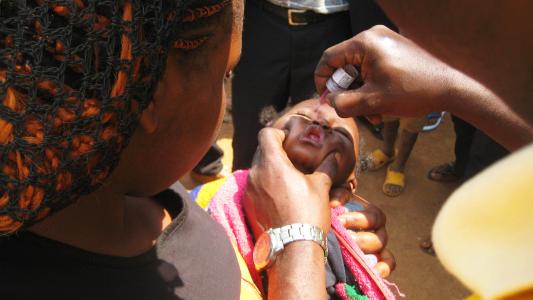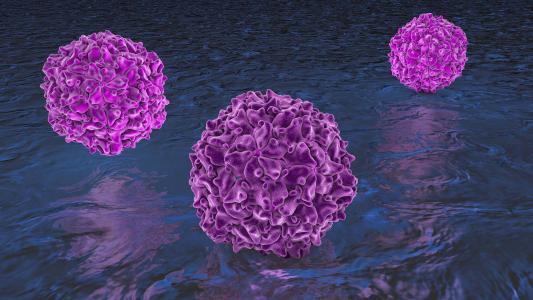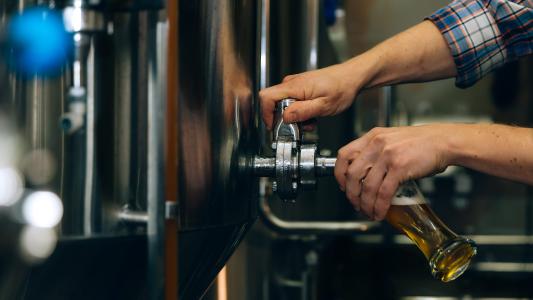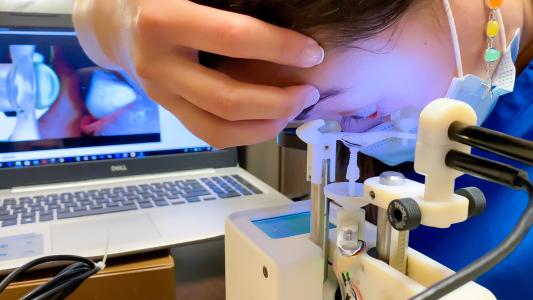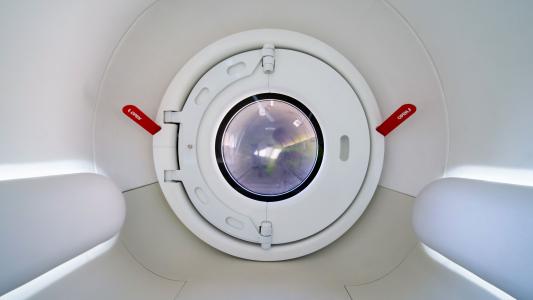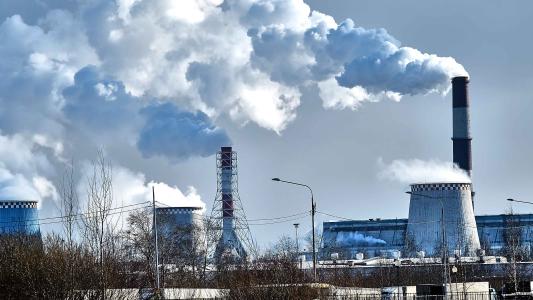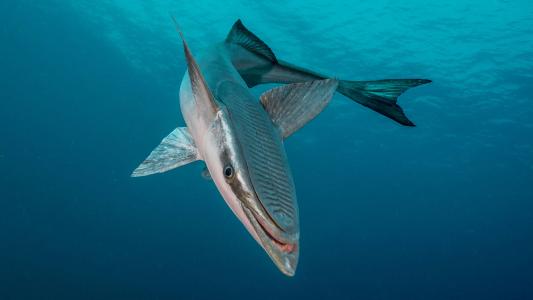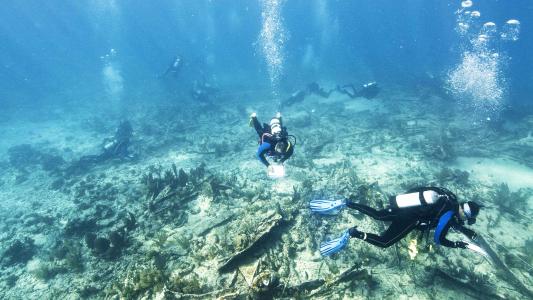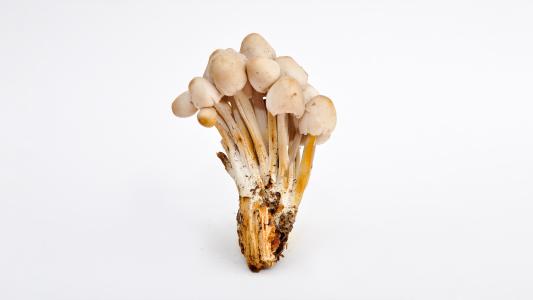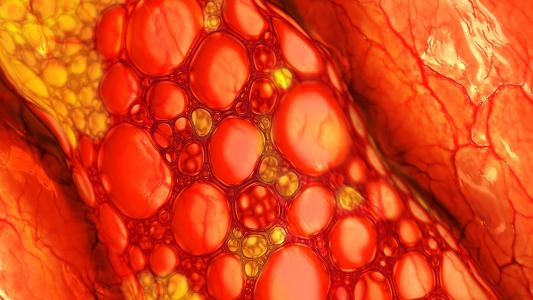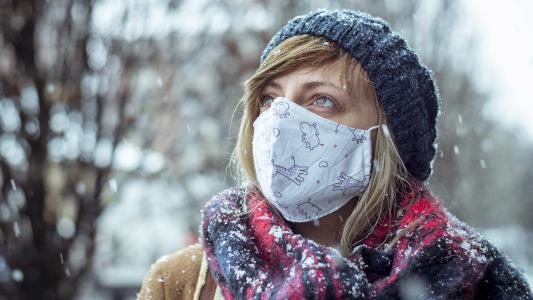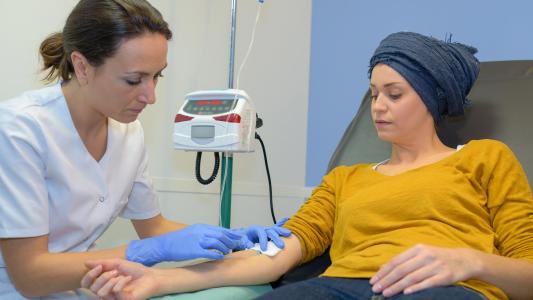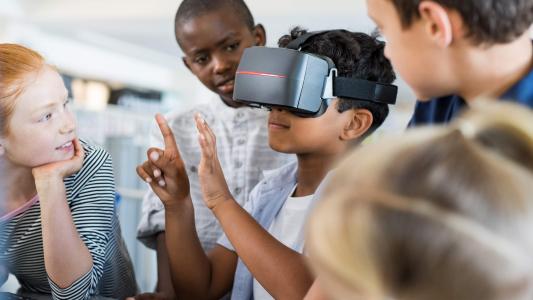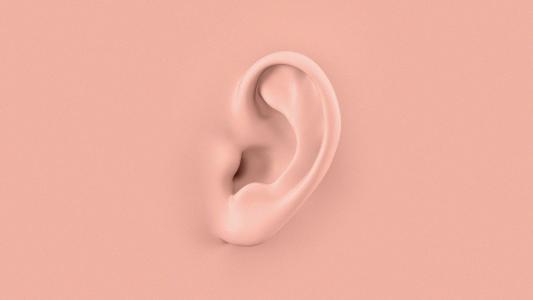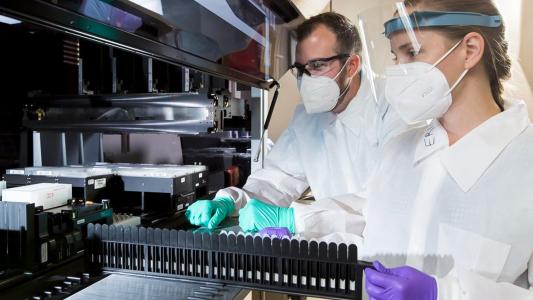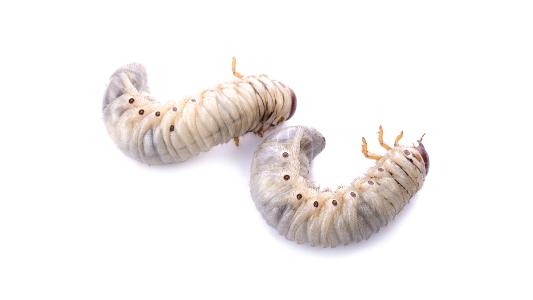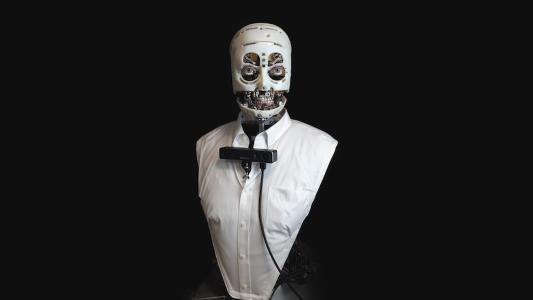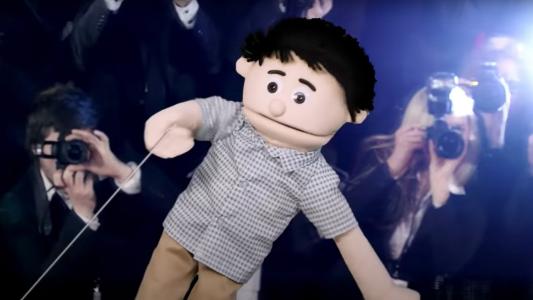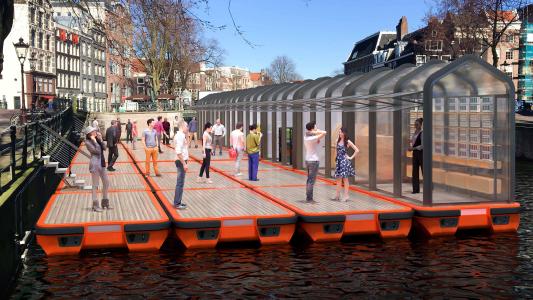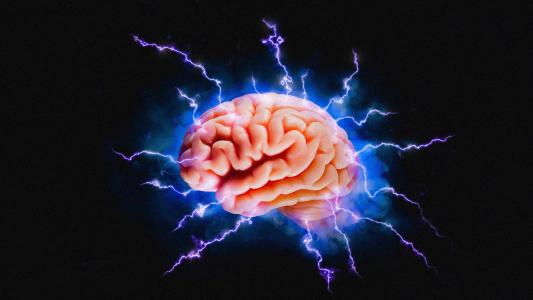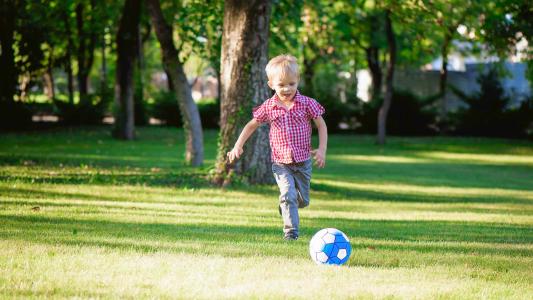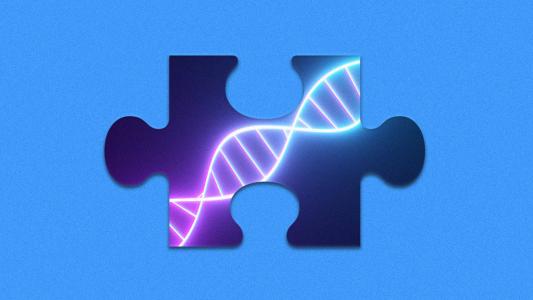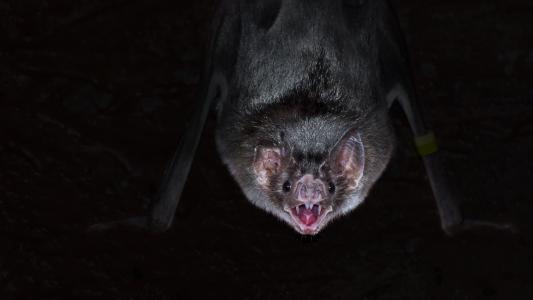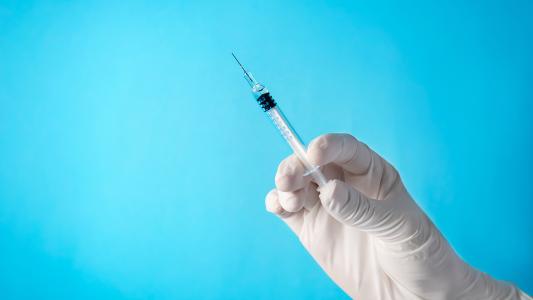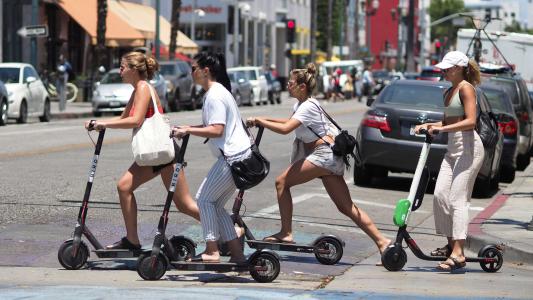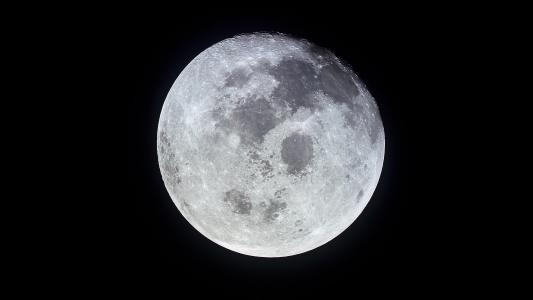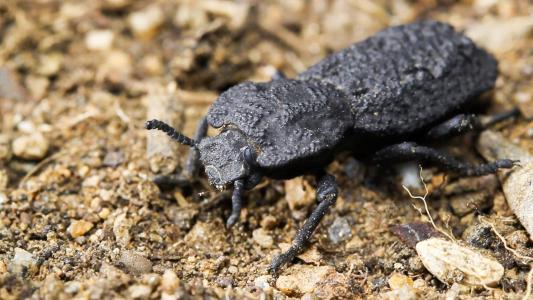Smartphone app gives independent travel to the disabled
In partnership with Ford
A new smartphone app unlocks independent travel for people with intellectual disabilities.
These futuristic sensors will allow cars to see through fog
Quantum sensors will transform self-driving cars, medical imaging, and more.
MDMA couples therapy could help couples dealing with PTSD
A small study out of Canada investigated the potential of using MDMA-assisted couples therapy to treat PTSD.
Making it rain with “cloud seeding”
China is using cloud seeding to create rain where and when it’s needed. Will it try to use geoengineering to combat climate change next?
FDA authorizes first over-the-counter COVID-19 test
The FDA has authorized the first over-the-counter COVID-19 test for home use, but buyers still have to send their samples to a lab for processing.
SpaceX’s Starship exploded, but the flight was a success
During a test flight, a SpaceX Starship rocket prototype soared to a record height of eight miles, completed a successful “belly flop” — and then crashed.
Heads up display lets firefighters see through smoke
Qwake Technologies’ C-Thru is a heads up display that combines AI, augmented reality, and thermal imaging to help firefighters battle blazes.
Ballerina teaches robot to dance with her during pandemic
“Quantum ballerina” Merritt Moore choreographed duets during lockdown — and then programmed a dancing robot to perform them with her.
Can Japan’s asteroid samples show us how life began?
JAXA’s Hayabusa2 has successfully returned asteroid samples to Earth. Its next mission? Gather information that could help prevent an asteroid impact.
AI navigation system teaches itself to steer internet balloons
Loon is using a new AI navigation system trained via reinforcement learning to control its fleet of internet-beaming balloons in Kenya.
Microdosing mushrooms: Explained
Microdosing mushrooms — taking doses of psilocybin too small to cause a trip to enhance daily life — is gaining momentum. But does science support it?
MIT built an AI to design robots
MIT has developed an AI capable of robot design — all you need to do is tell RoboGrammar the bot’s goal and the available body parts.
Giant rocket launching drone will take satellites to space
The world's biggest drone is designed to launch satellites into orbit while airborne.
Why do we care about moon rocks, anyway?
China’s Chang’e 5 is bringing the first new set of moon rocks and debris to Earth since the 70s. Why do scientists want these precious stones?
4 people in the world have a mysterious dementia. Could it hold a key to Alzheimer’s?
Alzheimer’s has proved difficult to treat. But solving the mystery of this ultra-rare frontotemporal dementia may unlock new understanding.
What does a solarpunk future look like?
The writers, artists, and activists of the solarpunk movement envision a future in which we’ve overcome the problems inspiring today’s dystopian sci-fi.
Cancer blood test trial to launch in the UK
The UK is trialing a blood test designed to detect 50 types of cancer at once, which could be a gamechanger in cancer screening if proven effective.
Gene therapy restores youthful eye cells — and vision — to older mice
A team of researchers have achieved sight restoration in older mice and those modeling glaucoma, in what could be an important step in understanding aging.
A gene drive could wipe out mosquitoes. But what if we want to turn it off?
Gene drives could wipe out malaria. It's risky, but scientists say it's getting safer.
CBD does not impair driving, study finds
A new study has demonstrated that CBD is safe for driving, while the effects of THC last only a few hours. This work could inform cannabis use laws.
Nematode worm could liquify slugs for US farmers
A parasitic nematode used in Europe to kill slugs was just discovered in Oregon, supporting calls to have its use for pest-control approved Stateside.
Cultured meat gets first greenlight for sale
In a world’s first, Singapore has approved the sale of cultured meat, a major win for the meat alternatives industry.
New pancreatic cancer treatment penetrates tough tumors
For a new pancreatic cancer treatment, researchers attached a chemotherapy drug to an antibody that targets a molecule on the outside of cancer cells.
Ai discovers billions of new trees from space
Researchers are using artificial intelligence and a supercomputer to count all the trees on the planet, via imaging from space.
DeepMind AI cracks the code of protein structures
A protein’s structure is crucial to its function. Predicting how a protein will fold was a challenge decades in the making — and answered by DeepMind.
Scientists sniff out the smells of old europe
A research team has just launched an ambitious project to identify and reconstruct the most popular scents of everyday life in 16th century Europe.
CRISPR used to edit HIV cure into monkey embryos
A mutation of the CCR5 gene can cure HIV — and thanks to CRISPR, scientists may soon be able to study it in animal models.
The quest for a “warm” COVID-19 vaccine
Developers are on the hunt for a warm COVID-19 vaccine, one that could be distributed in places where a reliable cold chain isn’t available.
This databank of mammalian genomes is the Noah’s Ark of DNA
The Zoonomia Project is the largest database of mammalian genomes to date, and it’s already helping researchers study SARS-CoV-2 and extinction risk.
At-home breast cancer screening, powered by AI
An award-winning at-home breast cancer screening device, called the Blue Box, could one day replace uncomfortable mammograms.
Reusable rockets: Making space more affordable
Reusable rockets, like those developed by SpaceX, are ushering in a new, cheaper era in space exploration
Congo just used vaccines to beat Ebola. What they learned could stop COVID, too.
Congo’s recent success delivering frigid Ebola vaccines to remote areas may provide invaluable experience for a COVID-19 vaccine cold chain.
Google’s Tree Canopy Lab is helping LA cool down
Google’s new Tree Canopy Lab uses AI and aerial photography to combat the urban heat island effect by showing a city exactly where it could use more trees.
Cancer immunotherapy “baits” the immune system into attacking hidden lung tumors
When cancer spreads, it often ends up in the lungs. ImmunoBait can ride a red blood cell in mice to deliver cancer immunotherapy where they live.
We can now see a virus invasion in real-time
Understanding how a virus infects and replicates in a cell is crucial to stopping them. Now, researchers can see an infection in real-time.
The hep C cure may also fight COVID-19
SARS-CoV-2 uses a number of key proteins to infect us, including its main protease. New research has found hepatitis C drugs can bind this protein.
Stopping nightmare disorder with a prescription-only watch
A prescription-only watch that treats nightmare disorder is the latest in a growing subset of health technologies called prescription digital therapeutics.
CRISPR could help save coral reefs from bleaching
Using CRISPR, scientists have identified a gene that could determine whether coral reefs are highly susceptible to bleaching or not.
When will we have a COVID-19 vaccine?
Several developers have reported incredible coronavirus vaccine progress, so when will we have a COVID-19 vaccine ready for distribution?
Human battles AI fighter jet in first man vs. machine test flight
Daniel Robinson, a veteran F-22 pilot, flew a real aircraft and battled an AI virtual fighter in a world's first.
Oxford says its COVID-19 vaccine is up to 90% effective
The University of Oxford's COVID-19 vaccine was up to 90% effective in a phase 3 trial and could be easier to distribute than other coronavirus vaccines.
How long will coronavirus immunity last?
Coronavirus immunity might last for years, according to a new study that measured the levels of virus-fighting immune cells in COVID-19 survivors.
We can grow 60% more food by hacking photosynthesis
By improving photosynthesis, we can get more food from our farmland.
New skin cancer vaccine is twice as powerful
By adding two “boosters” to an in-development skin cancer vaccine, scientists may have improved its ability to prevent melanoma recurrence.
Scientists want to use a laser beam to control lightning
A new laser beam may allow scientists to control lightning, allowing them to divert a bolt to strike where it’s less likely to cause a wildfire.
Bacteria could make space mining 400% more efficient
Using a bioreactor packed with bacteria could make space mining more efficient by speeding up the extraction of elements from rock.
New vanishing wound dressing heals skin with minimal scarring
A new kind of hydrogel dressing improves wound healing and minimizes scarring by kicking the adaptive immune system into gear.
FDA authorizes first at-home COVID-19 test
The FDA has authorized an at-home COVID-19 test that delivers results in 30 minutes, but you can’t get it without a prescription.
Bacteria’s self-destruct mechanism may unlock next-level genome editing
A mystery for 30 years, retrons are showing potential as genome-editing tools. Now, we know what they actually do.
The most detailed map of the human heart
A new map of the human heart details the function and location of 500,000 cells, providing a valuable tool for researchers studying cardiovascular disease.
The plan to convert space debris into labs for astronauts
Space services company Nanoracks plans to convert space debris into orbiting “Outposts” that could serve as hotels, research parks, and more.
Trial suggests Moderna’s coronavirus vaccine is 95% effective
Another win for mRNA vaccines: Moderna’s coronavirus vaccine appears to be 94.5% effective at preventing COVID-19, according to initial trial data.
New “universal” diagnostic test can ID any infection
UC San Francisco scientists have developed a new diagnostic test that uses DNA sequencing to quickly identify any pathogens in any type of patient sample.
Fusion-powered spaceships could take us into deep space
Fusion could make frequent trips into deep space possible.
A flu vaccine grown in tobacco plants just aced its clinical trials
Plant-based vaccines can be made cheaply and at scale. A tobacco plant-based vaccine for influenza has now been the first to complete clinical trials.
Finally! A smart toilet offers fecal testing for the masses
Fecal testing can reveal a surprising amount of medical data. Israeli startup OutSense wants to do so from your home.
Scientists create modem for future quantum internet
Physicists have created a modem for the quantum internet of the future, giving powerful quantum computers a way to share information.
Can a new polio vaccine help finish the virus off once and for all?
Thanks to polio vaccines and public health campaigns, polio is on the run — although COVID has it fighting back. Can a new vaccine help turn the tide again?
“Virus burritos” could be the key to vaccine preservation
Vaccine preservation is crucial to world health; the WHO estimates we waste 50% of vaccines a year. Vaccine burritos may provide some help.
Brewery is world’s first factory fueled by iron powder
A Dutch brewery is using iron powder to generate clean energy, marking the first industrial use of iron fuel.
This robot will put your contact lenses in for you
A man in Florida has invented a contact lens robot to insert or extract lenses for people with hand tremors or dexterity issues.
Gene therapy shows promise as a glaucoma treatment
A new gene therapy was able to repair a damaged optic nerve in mice, suggesting it might be useful for treating glaucoma in people.
Amputee veterans need to game, so this engineer builds new controllers from scratch
Inspired by his visits to Walter Reed Medical Center, engineer Ken Jones makes adaptive controllers to keep veterans gaming.
Scientists found a coral reef bigger than a skyscraper, hidden in plain sight
Researchers used an underwater robot to explore a new coral reef near Australia. The coral reef is the first reef discovery in 120 years.
Experimental hyperloop pod transports passengers for first time
Virgin Hyperloop has transported two passengers in a hyperloop pod, a milestone in the development of the high-speed transportation system.
This Canadian startup wants to make our buildings out of CO2
Carbon capture technology is here, but how do we make it feasible?
Pfizer COVID-19 vaccine appears 95% effective (updated)
The Pfizer COVID-19 vaccine appears to be 95% effective at preventing coronavirus infections, according to an early analysis of a Phase 3 trial.
We finally have footage of remoras, the ocean's hitchhikers, in action
Using never-before-seen footage, researchers are learning more about how the remora moves around its hosts.
Museums are racing to save Hong Kong's history before it gets censored
A sweeping security law has Hong Kongers racing to digitize archives and artifacts, from Tiananmen Square to Telegram channels.
The race to find slave ships, before they're lost forever
Diving with a Purpose is training the next wave of marine archeologists, working with youth to document potential slave ship wrecks before they’re lost.
Dropping drones into volcanoes can help us predict eruptions
The ratio of sulphur to carbon dioxide being released can be an indicator of imminent volcanic eruptions. Researchers are using drones to gather that data.
Psilocybin therapy appears to dramatically reduce depression
Psilocybin therapy — a combination of traditional therapy and supervised “trips” on the magic mushroom compound — shows promise as a depression treatment.
"Autoantibodies" may be causing COVID-19 blood clots
COVID-19 blood clots may be caused by autoantibodies, which attack the body’s own tissues and organs instead of intruders.
What’s going to happen with COVID-19 this winter?
There may be an increase in cases of COVID-19 this winter as people move indoors, but there are actions we can take to prevent it.
New nano drug may be able to break drug-resistant cancers — with fewer side effects
Drug-resistant cancers reduce the effectiveness of chemo. A team of researchers may have found a potential way to treat them.
Mapping the ocean floor with an underwater "GPS"
MIT researchers have developed an underwater, sound-based navigation system that could make it possible to map the entire ocean floor.
Experts say education coming to the VR world is going to be “absolutely incredible”
Because of the pandemic educators are looking for more remote learning options and discovering the benefits of virtual reality.
German concert experiment suggests large indoor events can be safe
A German concert study has found that hygiene standards, mandatory masks, and ventilation may allow for indoor events.
Earwax gives doctors easy access to cortisol levels
The Trears device could make it easier for doctors to monitor cortisol levels by allowing patients to extract their own earwax samples for analysis.
Blood test for Alzheimer’s now available at doctors’ offices
For the first time, a blood test for Alzheimer’s disease has received approval to be used in doctors’ offices in the U.S.
A French company is building the world’s biggest insect factory farm
Ÿnsect is building the world’s largest insect farming facility in Amiens, France. The mealworms grown there may end up feeding your pets and the salmon on your plate.
Disney gives humanoid robot a “lifelike” gaze
To escape the uncanny valley, Disney created a humanoid robot that mimics the minor eye and head movements people make during interactions.
Cough-analyzing AI detects asymptomatic COVID-19 infections
MIT has developed an AI that can detect asymptomatic COVID-19 infections from the sound of a person’s forced-cough with incredible accuracy.
Deepfakes shine in South Park creators’ new show
The creators of South Park have released a web show, Sassy Justice, that makes use of incredibly realistic deepfakes.
Autonomous boats could move people and goods
MIT launches a new autonomous boat — a fleet of floating platforms that could come together to build bridges, taxi people across a river, or create a party platform.
2 new nuclear plant prototypes are getting government funding
The Department of Energy is putting millions behind two new nuclear plant prototypes.
Radioactive diamond batteries keep going and going
These nuclear diamond batteries could provide an endless source of energy.
Scientists test mind control with light — no surgery required
In a new breakthrough, scientists use optogenetics to manipulate brain cells in mice without surgery or brain implants.
Nuclear fusion machine turns on for the first time
A new spherical tokamak in the U.K. could overcome one of the biggest hurdles to nuclear fusion power: the “exhaust problem”
Green space at daycare gives city kids an immune boost
Adding a green space to an urban daycare’s playground can boost a child immune system after just 28 days.
This parent is helping push autism gene therapy forward
Not too long ago, autism gene therapy was a pipe dream. Now, armed with specific targets and new methods, a small wave of gene therapies is gathering.
Vampire bats social distance when sick, and so should you
Vampire bats are incredibly social creatures, living in colonies which can be massive. New research suggests that when they feel sick, they socially distance.
How synchronized fireflies could inspire robot swarms
A recent discovery about the synchronized fireflies' amazing light shows could help researchers acquire fresh insight into swarm robotics.
If you train robots like dogs, they learn faster
The dog-inspired SPOT framework effectively trains an AI robot more quickly than other reinforcement learning methods.
How to safely celebrate Halloween during COVID-19
People celebrated Halloween during the 1918 flu pandemic and you can still celebrate Halloween during COVID-19 — just maybe not the way you usually do.
Can flu vaccines prevent COVID-19?
Researchers suspect that flu shots could prevent coronavirus infections, giving people yet another reason to get vaccinated.
Cable companies won’t, so rural America is building its own broadband network
The pandemic revealed how essential the internet is. Now, electric cooperatives that once put rural America on the grid are installing fiber optics.
Bird and Lyft are offering free rides to the polls in 2020
The micromobility industry launched a national campaign to offer free rides to the polls on Election Day.
NASA confirms existence of water on the moon
A study confirmed the existence of water on the moon the same day another provided evidence that the lunar surface could be rife with water reserves.
The "Iron Man" of beetles could inspire super-durable cars and planes
The diabolical ironclad beetle could be the next big thing in biomimicry, inspiring the design of extra-durable planes, cars, and more.

